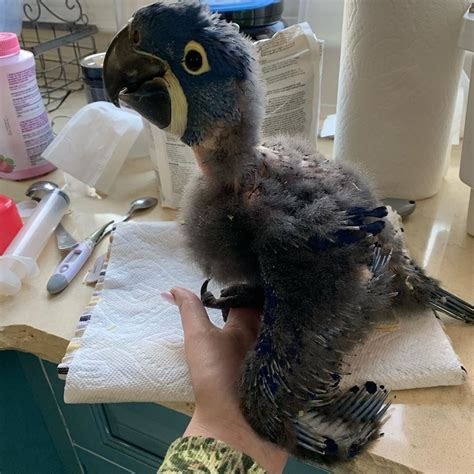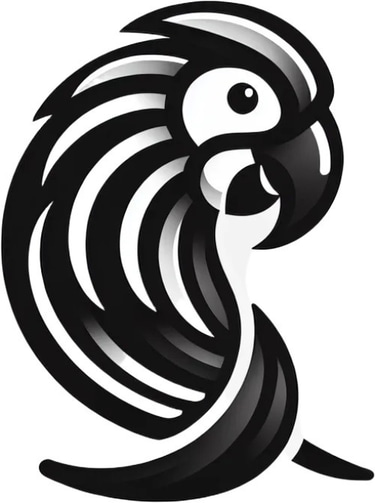Warranty & Policy
Health Guarantee & Refund Policy – Hyacinth Macaw Parrots
At the Hyacinth Macaw Parrot Paradise, we are committed to the health and well-being of our birds. All pet birds are sold with a 7- 10 day health guarantee. If your bird shows signs of illness within this period, please contact us immediately and provide a veterinary report from a licensed avian vet. We will offer a replacement bird or store credit, based on the vet’s findings.
ALL Birds purchased from us MUST be accompanied by a Purchase order or agreement in which a 30 days health guarantee is stipulated. Every bird is offered Healthy and certified by a valid health Certificate of at least 3 to 10 days prior to delivery/pick-up date. Within 10 days after receiving your bird, all clients are recommended to take their bird to a Veterinarian of their choice to re-confirm the health state. If found wanting or lacking, you must reach out to us immediately for an appropriate action;-n which entails but not limited to either REPLACEMENT of bird, covering of medical cost or REFUND depending on the situation.
ALL Hyacinth macaw parrots we offer are 100% FREE from any diseases, safe and guarantee to be healthy at time of dispatch from us
Refund Policy:
Refunds are only provided if the bird is diagnosed with a pre-existing, life-threatening condition by a licensed veterinarian within 7 days of purchase. Birds must be returned with their original sales receipt and in the same condition (apart from illness).
This policy does not cover illness or injury due to improper care, accidents, or exposure to other pets after purchase.
Please contact us with any questions or concerns — your satisfaction and the bird’s health are our priorities.


FAQ for Hyacinth Macaws as Pets.
Do Hyacinth Macaws talk?
Yes, Hyacinth Macaws can learn to talk, although they are considered moderate talkers in comparison to other parrot species. With practice and patience, they can mimic human speech and learn words and phrases.
Are Hyacinth Macaws suitable for families with young kids?
Hyacinth Macaws can be suitable for families with children, as they are gentle and affectionate birds. However, it’s essential to supervise interactions between children and the bird, and teach kids how to handle and interact with the parrot safely and respectfully.
Can Hyacinth Macaws be trained?
Yes, Hyacinth Macaws can be trained to perform various tricks and commands. They are intelligent birds that respond well to positive reinforcement and consistent training methods.
How do I know what gender Hyacinth Macaws are?
Determining the gender of a Hyacinth Macaw can be challenging based on physical appearance alone. The most accurate method for determining gender is through DNA testing, which involves collecting a feather or blood sample and sending it to a specialized laboratory for analysis.
What is the average lifespan of a Hyacinth Macaw?
With proper care, a Hyacinth Macaw can live up to 50 years or more. A healthy diet, a clean and spacious living environment, and regular veterinary check-ups are essential factors in ensuring a long and healthy life for your pet.
What should I feed my Hyacinth Macaw?
A balanced and varied diet is crucial for a Hyacinth Macaw’s health. Their diet should consist of high-quality pellets, fresh fruits and vegetables, and a moderate amount of nuts and seeds. Avoid feeding them an all-seed diet, as this can lead to nutritional deficiencies and health problems.
Shipping Modalities for Parrots.
Shipping birds, particularly parrots, requires careful planning to ensure their safety, comfort, and compliance with local and international regulations. Below is an outline of the essential modalities, including preparation and crate specifications:
1. Pre-Shipping Preparation for Birds
Health Check & Documentation:
Get a certified health check from an avian veterinarian.
Obtain any required permits (e.g., CITES for certain parrot species).
Ensure up-to-date vaccinations if required.
Secure a health certificate (usually valid for 7–10 days before shipping).
Acclimatization:
Bird is allowed to spend some time in the crate or box prior to shipping to reduce stress. Avoid feeding the bird at least 2–4 hours before travel to prevent motion sickness.
Labeling:
Clearly label the crate with:
“Live Birds” or “Live Animals”
Species and number of birds
Sender and receiver details
“This Side Up” with arrows
Hydration:
Use water gel packs instead of bowls to prevent spillage and keep the bird hydrated.
Avoid using open water containers.
2. Crates/Boxes for Shipping Parrots
Type of Container:
Use IATA-compliant shipping crates for air transport.
For smaller or short-distance ground transport, custom wooden or hard plastic ventilated boxes may suffice.
Key Features:
Sturdy and escape-proof – no sharp edges or loose fittings.
Adequate ventilation on at least three sides.
Perch inside (low-level, secure) to keep the parrot stable during transit.
Darkened interior to help calm the bird and reduce stress.
Absorbent lining (e.g., shredded paper or pad) on the floor.
Size Guidelines:
Bird has to stand naturally and turn around comfortably.
Avoid oversized crates that could cause injury during movement.
3. Shipping Methods
Air Cargo (Most Common for Long Distance):
Coordinate with airlines that are pet or bird-friendly.
Use approved live animal cargo services.
Ground Transport:
Suitable for local or regional delivery.
Ensure the vehicle is climate-controlled and minimize travel time.
Courier Services Specializing in Live Animals:
These services handle logistics, documentation, and temperature control.
4. Post-Shipping Recommendations
Upon arrival, place the bird in a quiet, safe environment.
Offer fresh water and familiar food.
Monitor closely for signs of stress or illness.
